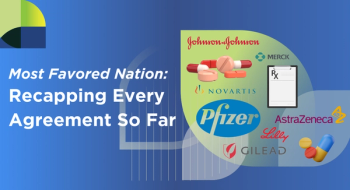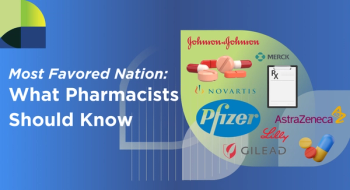
- June 2017 Immunization Supplement 0
Reimbursement for Service of Administering Vaccines, From an Independent Pharmacy Perspective
Over the last 20 years, pharmacies have become known immunization destinations.
Over the last 20 years, pharmacies have become known immunization destinations. Immunizations have become a standard practice at pharmacies throughout the country, and pharmacist delivery has had a tremendous impact on patient care and public health. A key aspect to any pharmacy service is the ability to bill appropriately and obtain correct reimbursement. Consider the following points when billing immunizations:
Make sure you are contracted to bill immunizations with your desired payers before you begin.
1. Pharmacy Benefit Manager (PBM). Being contracted with a PBM does not guarantee that you may bill for immunizations. Some PBMs require opting into the service or signing an immunization addendum to your contract. Contact the individual PBM or, if applicable, your Pharmacy Service Administration Organization to verify any requirements before you begin.
2. Medicare Part B. Medicare Part B immunization billing requires you to have a specific provider number; this is different from a Durable Medical Equipment, Prosthetics, Orthotics, and Supplies provider number. If you do not have a Medicare provider number for immunizations, you must request one from the local Medicare Part B carrier using form CMS-855I (individual) or CMS-855B (pharmacy) before you can claim reimbursement. Most organizations apply using form CMS-855B, which would have the claims and reimbursement under the pharmacy, not the individual pharmacist. Allow a minimum of 4 to 8 weeks for a Medicare provider number to be issued after submitting the appropriate paperwork. Keep in mind that all Medicare Part B enrollees have coverage for pneumococcal and influenza vaccines, while hepatitis B vaccine is covered only for specific high-risk patients.
3. Medicaid. Medicaid varies from state to state. Some states allow pharmacists to provide immunization services and receive reimbursement under the current fee schedule, while others will exclude pharmacists based on provider type. Check with your state Medicaid.
4. Third-Party Medical Plans. Medical plans, whether commercial, Medicare, or Medicaid Advantage, are usually a separate direct contract. Provider services for the plan can help to evaluate this option for your pharmacy.
Bill for all you do!
Administering immunizations is a service that requires billing 2 lines for appropriate reimbursement: 1. Vaccine and 2. Administration. The first line is always easy to remember: It’s the drug. The second line is what compensates the pharmacist for time and supplies to complete the injection. Not billing the administration fee can shortchange your reimbursement by $15 to $40 per immunization, depending on the payer and type of immunization.
How you will bill the administration fee will vary, depending on your pharmacy system and the insurance being processed. Most PBMs, including all Medicare Part D plans, use the National Council for Prescription Drug Programs (NCPDP) standard for submitting the administrative or incentive fee via NCPDP field 439-E4, 440-E5, and/or 441-E6. Which fields are used depends on the payer. The fee is attached and transmitted with the drug (vaccine) claim for adjudication by the PBM. Examples:
● Reason for Service Code (NCPDP field 439-E4): PH = Preventive Health Care
● Professional Service Code (NCPDP field 440-E5): MA = Medication Administration
● Result of Service Code (NCPDP field 441-E6): 3N = Medication Administration
Medicare Part B and medical insurance require submission of a claim form with the appropriate procedure and diagnosis codes submitted for both the drug and administration. Most pharmacies use a billing service to assist with proper billing, streamline the process to better fit pharmacy workflow, and allow the claim to be sent in a fashion similar to that of a regular prescription claim. Medical billing is completely different from pharmacy billing, so make sure to do your homework and understand the process before beginning.
Direct pay options are another form of reimbursement. They can include direct private payment from the patient (including payment through flexible spending or health savings accounts) or contracting with private employers or other groups to offer immunizations. When setting up any agreement with an employer or other third party, remember to include the contracted rates for both the vaccine and administration.
In closing, remember the following when billing immunizations:
● Even if the payer does not cover the administration, pharmacists should have a mechanism in place for receiving compensation from the patient for administration.
● Bill for the vaccine and administration every time.
● Tell patients what they must pay for the vaccine and your service before you prepare the dose.
● Give all cash-paying patients receipts so they can seek reimbursement from insurance.
● You cannot charge Medicare or other third-party payers more than your usual and customary fee.
Vincent A. Hartzell, PharmD, is president of Hartzell’s Pharmacy, Catasauqua, Pennsylvania.
Articles in this issue
over 8 years ago
Increasing Vaccination Rates to Decrease Death Ratesover 8 years ago
A Detailed Guide to Adult Immunizationsover 8 years ago
Authority and Scope of Vaccination: How States DifferNewsletter
Stay informed on drug updates, treatment guidelines, and pharmacy practice trends—subscribe to Pharmacy Times for weekly clinical insights.


























